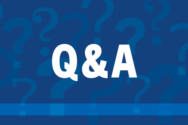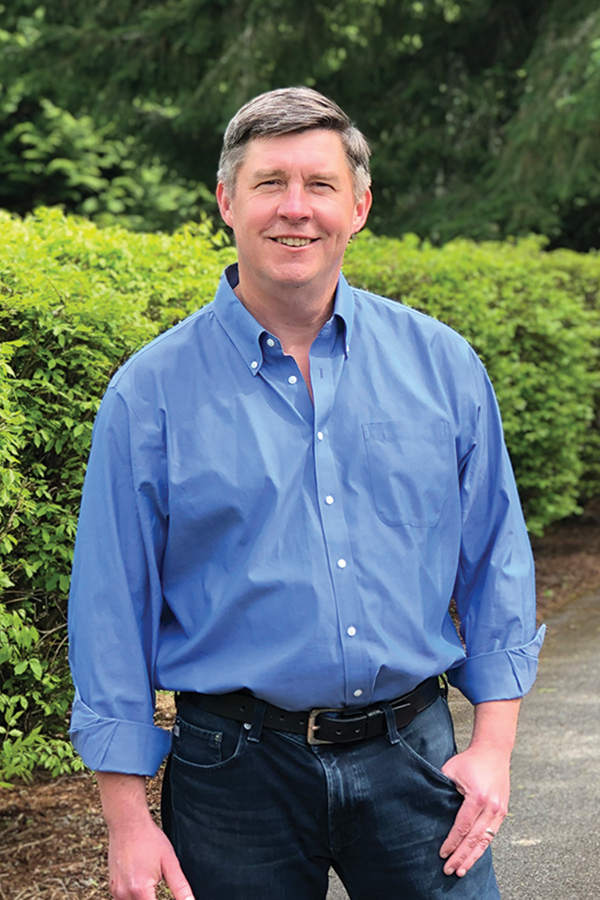
Home » Q&A with Todd Brix
Q&A with Todd Brix

May 12, 2022
Todd Brix
CEO and Co-founder
OCOchem

Number of employees you oversee: 5
What is OCOchem?
OCOchem is a clean-tech startup that is developing and commercializing technology to convert carbon dioxide, water and renewable electricity into an energy-dense, non-flammable liquid hydrogen carrier and chemical known as formic acid.
What is formic acid? A simple naturally occurring molecule made by ants and plants to kill bacteria. Industrially, it is made today from fossil fuels and used to preserve animal feed, make textiles and rubber, and is used to carry hydrogen in a liquid form. With our process, we make formic from carbon dioxide (CO2), water and renewable electricity in a more sustainable and lower cost way.
Why did you co-found OCOchem?
We founded OCOchem to solve the core problem with CO2, which is how do you convert it into something useful, rather than emit it into the atmosphere. If you can economically use CO2 to make useful chemicals, fuels and materials, you don’t need to extract the carbon from the earth in the form of fossil fuels. Every plant and tree converts CO2 into something useful every day; we built a machine to do the same thing.
What does it do?
OCOchem is building the world’s first industrial-scale device that we call the Carbon Flux Electrolyzer that converts CO2, water and renewable electricity directly into a liquid hydrogen carrier chemical – formic acid.
Why did you choose Richland?
We chose to locate our R&D laboratory and fabrication equipment in Richland to be in the heart of the Mid-Columbia region near the Pacific Northwest National Laboratory with access to a large labor pool of researchers, engineers and technicians, a low-cost, low-carbon electricity mix, abundant water and land for expansion, and to provide a high quality of life for employees. I also was born in Richland and raised in Kennewick, so I know and like the area.
What does “OCOchem” signify?
OCOchem combines the actual structure of the carbon dioxide molecules O=C=O and “chem,” which is short for chemical or chemistry, which is what we do: CO2 conversion chemistry, and look at CO2 the way it really is, an essential resource.
You bring backgrounds in both science and entrepreneurship to the role. How do you translate between those worlds?
Today, entrepreneurship is the way scientific insights inform technology that is commercialized into products. Big organizations don’t really invent or innovate anymore – that’s now up to entrepreneurs. Small, focused companies solving customer problems is where the breakthroughs in clean technology will occur.
What do ordinary nonscientists know about your technology and why does it matter?
A simple, but essentially accurate way to describe our technology is that we do electrochemically what plants and trees do biologically: We convert CO2, water and energy into a useful product. We’re a lot less sophisticated than what plants do and right now are just focused on making one simple molecule this way. Like a lot of new technologies, ours is built on recent advances in materials, machinery and the abundance of raw materials (feedstock), which are converging to make this technically and economically viable.
You recently secured funding for a green energy project involving the Port of Tacoma. How does that advance your mission? Are you establishing a base there?
Yes. OCOchem and our partners were recently awarded a $1.5 million Clean Energy Fund Research, Development and Demonstration grant from the Washington State Department of Commerce. We will use the grant to build and demonstrate an industrial-scale Carbon Flux Electrolyzer to make a liquid hydrogen carrier and to use it to fuel a generator to power, with non-fossil fuels, refrigerated containers to keep our state’s fruit cool at the Port of Tacoma with Tacoma Power. This project is significant as it will demonstrate the utility and benefits of the technology using full-size industrial scale cells.
What is one characteristic that you believe every leader should possess?
It really depends on who you’re leading and what you’re trying to do. As a hard-tech entrepreneur I’ve found persistence (patience, determination, creativity and hard work) to be the most valuable characteristic.
What is the biggest challenge facing entrepreneurs today?
I don’t think there’s ever been a better time to be an entrepreneur. Software exists to automate many business processes. You can access almost all information and communicate with anyone in the world quickly, and there are all kinds of ways to raise capital.
If you had a magic wand, what would you change about your industry/field?
Government policy and programs have a notable multifaceted and complex influence on the clean-tech industry, which results in some technologies being favored over others and over uncertain time periods, which creates unsustainable successes. It would be better if we just had a single technology-neutral policy enacted over a long period of time on a bipartisan basis that said companies that emit CO2 to make or deliver a product pay a tax, and those tax proceeds go to companies that consume, convert or sequester CO2. Pretty quickly the price of CO2-positive goods would go up, the price of CO2 negative or neutral goods would go down, and this would solve greenhouse gas emissions very quickly at the lowest cost to society with the most appropriate technologies.
What advice would you give someone going into a leadership position for the first time?
I don’t give or take unsolicited advice unless 1) I know you and your circumstances, 2) you ask me, and 3) I know you’ve thought about it already based on how you phrase the question.
How do you keep your employees (or team members) motivated?
We have a goal, which no one has achieved before, and which if we are successful at achieving will change our children’s world for the better. That goal is to create the first manmade process that does what plants do (convert CO2, water and energy into something useful) AND do it at a lower cost than the current fossil-fueled based process.
Who are your role models or mentors?
I admire Benjamin Franklin – what he did and what he wrote. He was a full-spectrum human being who had time to write down and share his thinking and life with us.
How did you decide to pursue this career?
This is my third career. My first career was what I was trained to do: I was a hydroprocessing engineer at Chevron (loved it). Second career was what I wanted to do – lead teams at Microsoft to develop software to load into smart connected devices (loved it). Third was what I needed to do because I and our team can solve this problem (loving it).
What do you consider your leadership style to be?
As my wife will tell you, I’m not into style and am not the self-reflective type.
How do you balance work and family life?
I just do what needs to get done, but I try not to work on Sundays or after 6 p.m.
How do you measure success in your workplace?
I look at how fast we fail and learn. You want to try lots of things, fail quickly and learn what works. I want us to think, do, learn and repeat rapidly. Technology development, when you work with molecules and not bits and bytes, is mostly about learning what doesn’t work that should have worked, and figuring out why.
What do you like to do when you are not at work?
Anything the opposite of what I do when I’m at work. So, low structure, outdoors, non-digital, physical work with immediate tangible results that family members appreciate, like barbecue or mowing the lawn.
What’s your best time management strategy?
Do most urgent/important things first and then the important things that aren’t as urgent.
Best tip to relieve stress?
Be grateful. We live in the best time ever to be alive and what’s the worst case anyway? Do something you like, work hard to do it well and live simply. Be grateful every day.
What’s your favorite podcast?
Most-used app? Or favorite website? Favorite book?
I’m more of a print than a digital media guy. You can consume information 3-4 times faster by reading than other media and do so with no ads. What a deal. I end up reading about one nonfiction book a week or so. I have read the print edition Wall Street Journal cover to cover every day for the last 30 years. That’s about it.
Do you have a personal mantra, phrase or quote you like to use?
It’s a weird hybrid of things Spock and Jesse Jackson said: “Keep hope alive, live long and prosper.” It just kind of formed in my head some years ago and is still there.
Q&A Local News Environment
KEYWORDS may 2022





